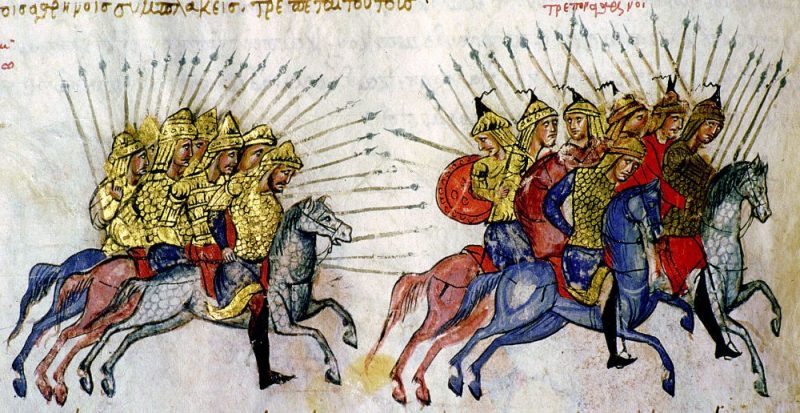The time between the 7Ith and 8th centuries AD is decisive for the Balkan Peninsula and the future of Europe. The Byzantine emperor Justinian II is forcefully removed from his throne. Khan Asparuh, the founder of Danubian Bulgaria, dies in a battle against the Khazars and is succeeded by his son Tervel.
The Arab hordes are determined to enter and conquer Europe, and spread the teachings of the Islamic religion. In that moment of historical significance, a political pact between the Byzantium Empire and Bulgaria will be the cornerstone which decides the fate of the Continent and the Balkans.
Khan Tervel, the saint and savior of Europe
Following those circumstances in the beginning of the VIIth century, Bulgaria is under the rule of Khan Tervel. His reign continues for 21 years from 700 until 721. From the very beginning, he proves himself as a genius tactician and eliminates the Khazar Khanate, also expanding the borders of Bulgaria.
In the year 705, he was proclaimed Caeser, BY the Byzantium emperor Justinian II, for his aid in the organization of a coup in Constantinople to win back the throne that was Justinian’s by right. This was most unusual for that time since Caesar was a title given to the successor of the throne.
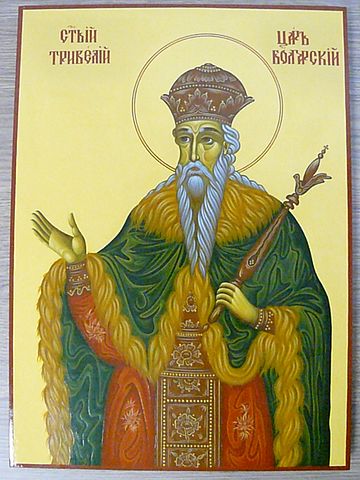
With bravery and tactics will seal his name in the history of the Balkan Peninsula and Europe as the Khan who annihilated the Arab horde during the siege of Constantinople. For his deeds, the Bulgarian khan was also canonized as a saint from both the eastern Orthodox and also from the western Catholic churches, thus named St. Trivelius (or Tribellius) Theoktist the savior of Europe. The might of the Bulgarian Khan was remembered and glorified by European chroniclers up to the XVth century.
Emperor Leo III, the Battle for Constantinople and the Old Continent
The year is 715. In the beginning of the spring, the 25th of March, the Byzantium emperor Leo III Isaurian, also called The Syrian, starts the Isaurian Dynasty after The abdicatIon of Theodosius III.
Taking an advantage of the civil discord in the Byzantium Empire, the Umayyad forces decide to go on an offensive with the main target being the city of Constantinople and the passage to Europe.
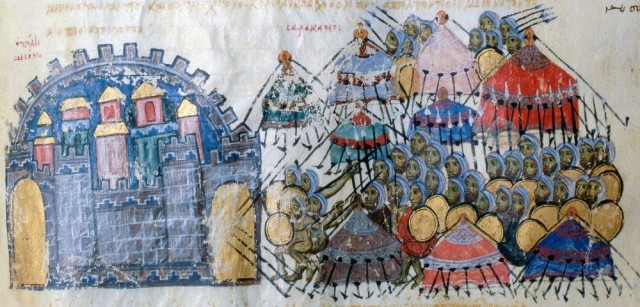
Just a few months later, in the summer, Maslama ibn Abd al-Malik, brother of the Umayyad Caliph Sulayman ibn Abd al-Malik, crosses the Dardanelle with an army of over 100 000 men, while a navy of more than 2500 ships crosses the Bosporus and thus the Arab forces besiege the capital city of Constantinople by sea and land. The tremendous Arab army digs a ditch around the Capital, all the way from Golden Horn to the Marmara Sea.
Only the information from Christian sailors which deserted from the Arab navy gave Leo III the opportunity to react accordingly to the plan of the conquerors. The resistance of Lev III followed the careful preparations settled by his predecessors. The Byzantium’s emperor answers to the attack was to use Greek fire and thus causing significant damage to the Umayyad’s navy.
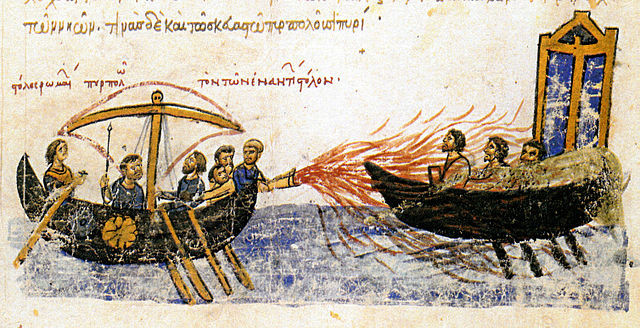
In 717, Lev III decides to contact the Bulgarian khan Tervel, relying on the earlier contract between Bulgaria and Byzantium. He sends Patrician Sicinius as a messenger and the Khan immediately comes to the aid of the fellow empire. Khan Tervel, leading the Bulgarian army conducts a vicious attack, surprising the Arab forces in the rear and destroying a large part of their army. The Byzantine army acted in complete synchronicity with the Bulgarians, giving a tough time to the Arab navy.
The Arabian vanguard, led by Ubaida, tool immense damage, and the 4000 men Arabian scout squad, led by Maslama himself is also annihilated from the Bulgarians’ attack. Maslama is left with no other choice but to flee from the battlefield, which has turned into a massive massacre of Umayyads.
Scared, he orders his forces to dig a second ditch around the camp of his land units as a protection from the Bulgarians and a third one against the Romans. Now, those who have once held the siege have turned into the besieged themselves.
With both the Bulgarians and the Romans attacking the land and naval units of the Umayyads, they still somehow managed to stand firm, even considering the surprisingly cold winter, buried in snow for over a hundred days.
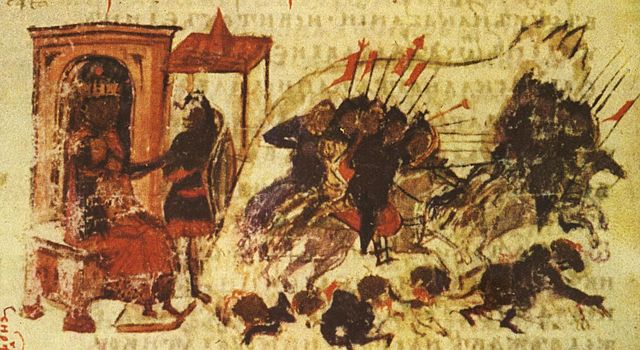
In the summer of 718, in the Thracian coast of Abydos, a fresh supply of Arab forces anchored their ships. Encouraged and reinforced the Arabs decide to make a second attempt on retaking their former position of besiegers, thus launching an all-out attack against the Romans and the Bulgarians.
The decisive engagement between the Muslim and Christian forces of the Bulgarian Khan Tervel and the Byzantium emperor Lev III is remembered in history for the massive destruction of the Arab armies.
The chronicler Theophanes reports the army of Maslama, the brother of the Umayyad Caliph, to have lost over twenty thousand men in the battle while the chronicler Sigebert of Gembloux insists the Arabs lost more than thirty thousand men.
However, the siege continues for two more months after the battle between Arabs and Bulgarians. In the end, the naval siege ends exactly one year later.
On 15th of august 1718, the Arab navy leaves for Syria. Unfortunately for them, they are caught in a heavy sea storm and lose even more ships, from the already much smaller navy. Only five of the original 2500 ships reach the coasts of Syria. The Arab chroniclers assess the number of fallen soldiers close to a hundred thousand men.
The coalition between the Bulgarians and Byzantium also included Khazars, Armenians, as well as representatives of other ethnic groups from the Caucasus region. This very coalition is considered in history as the main reason the Arab conquest could not reach Europe and therefore, its Islamization was stopped on the eastern border of Asia Minor for the next six centuries and the Arabs were unable to enter Europe from the Bosporus.
